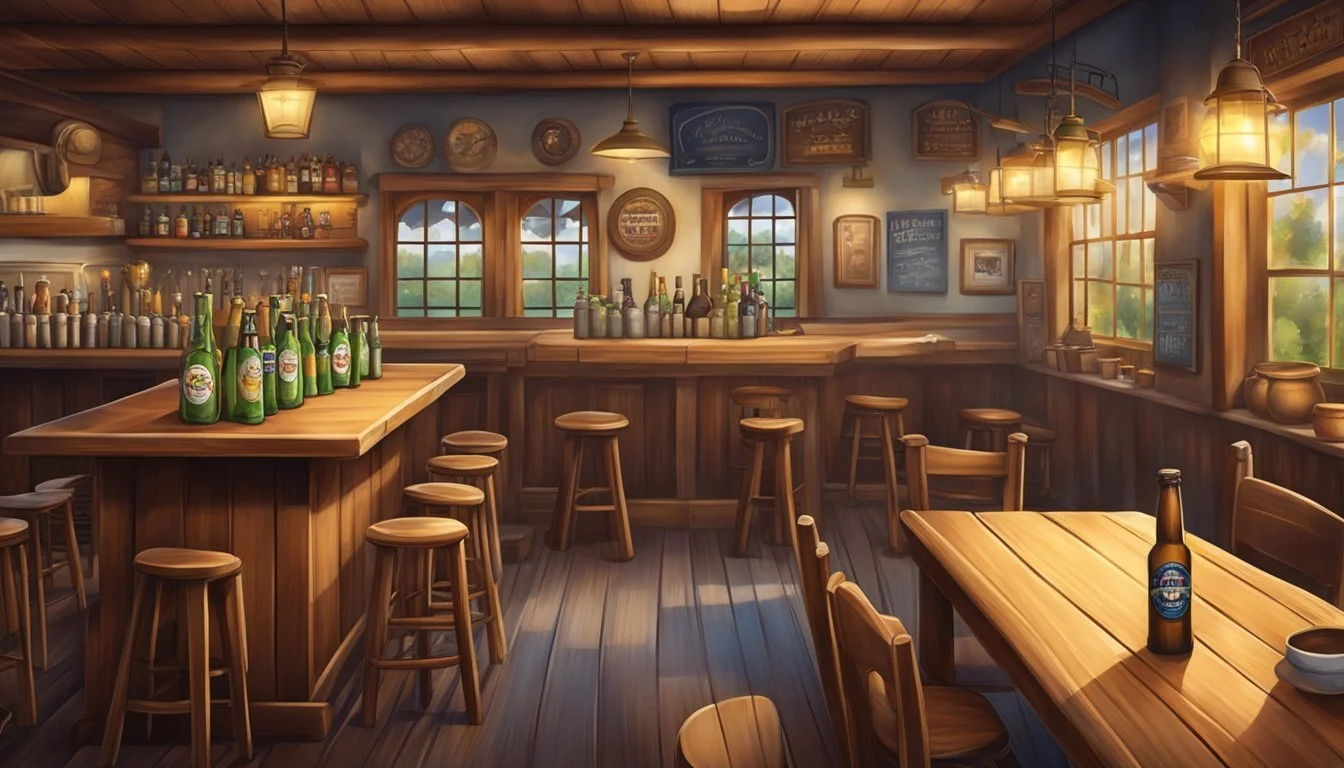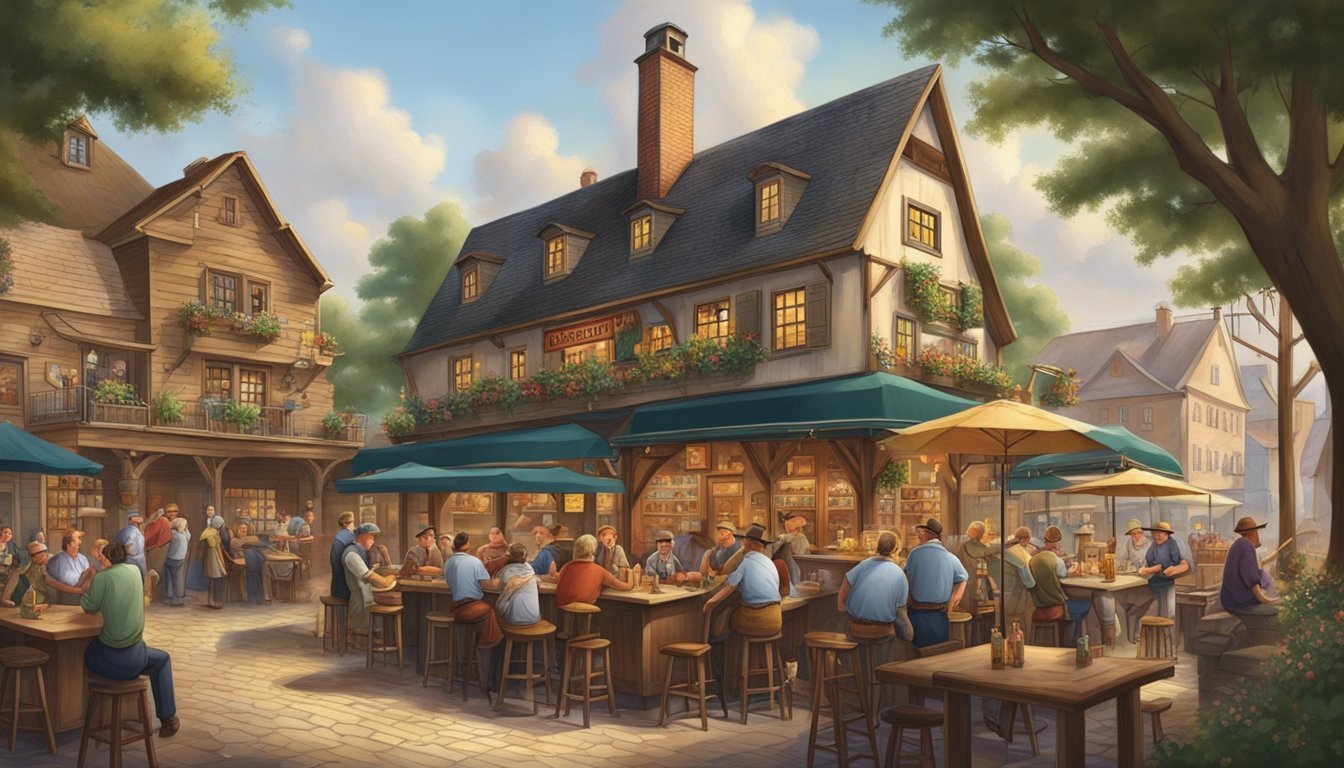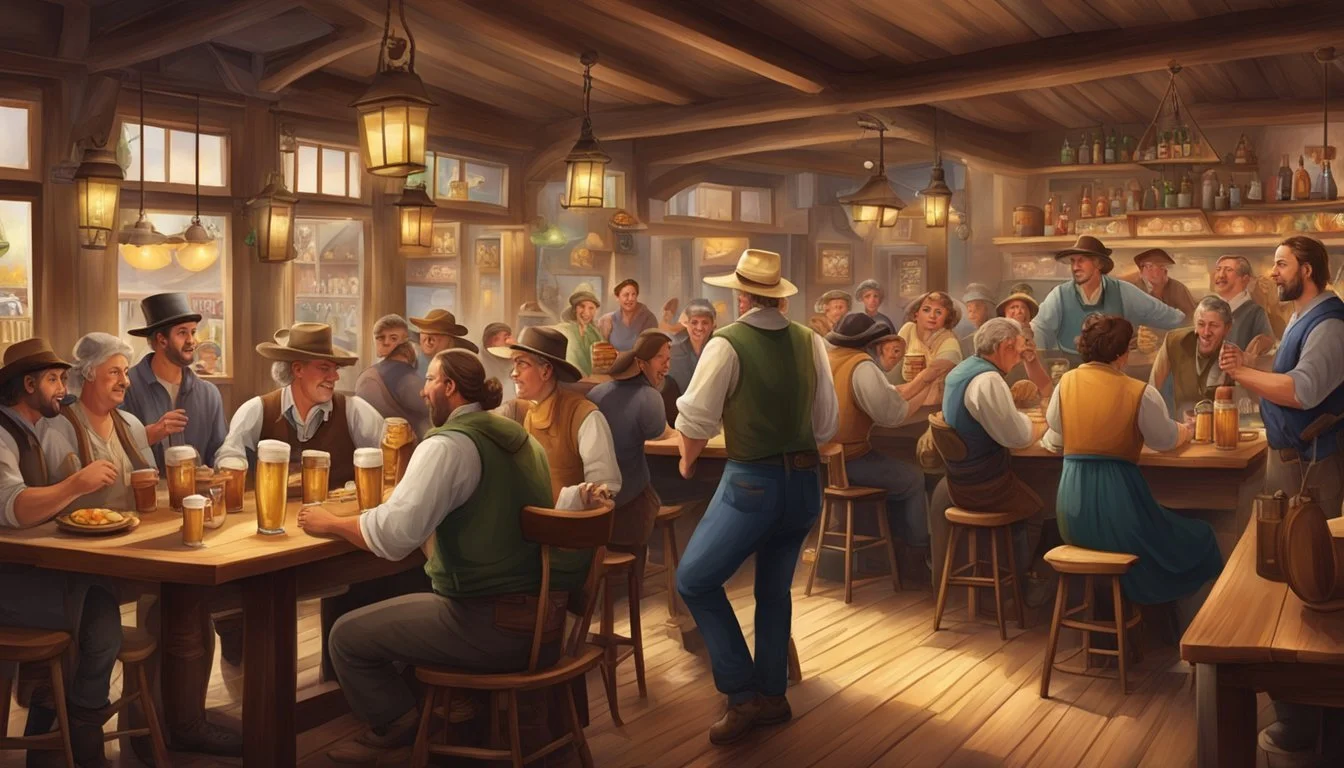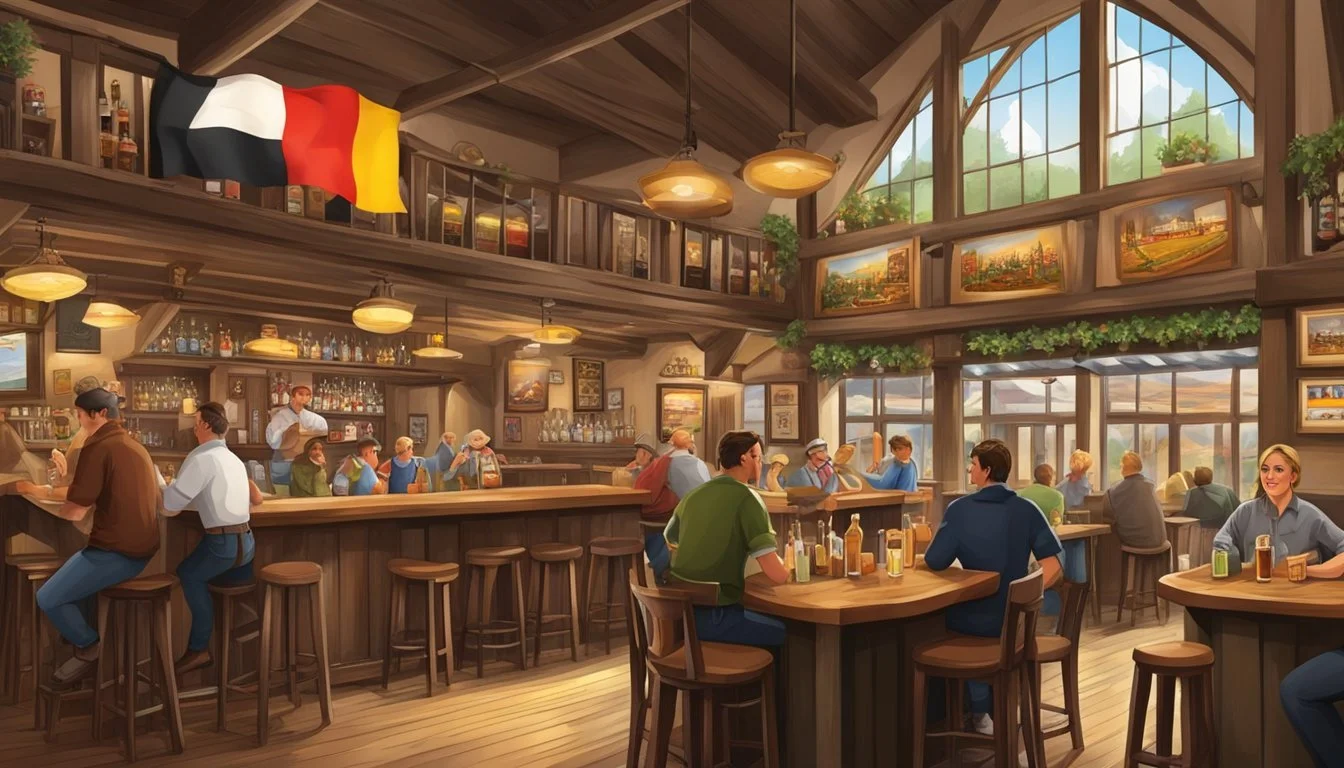The History of German Texan Taverns and Pubs
Cultural Crossroads in the Lone Star State
The history of German Texan taverns and pubs is intricately linked to the cultural tapestry of Texas, reflecting the significant impact of German immigrants on the region. During the mid-19th century, a substantial wave of German migration was initiated when the Adelsverein, also known as the Society for the Protection of German Immigrants in Texas, facilitated the settlement of thousands of Germans in Texas. These settlers brought their rich traditions and cultural practices, including their social and brewing customs, deeply embedding them within the Texan lifestyle.
As they established communities, the Germans in Texas created gathering places that echoed the familiar taverns and pubs of their homeland. These establishments became hubs for social interaction, serving as key venues for the preservation and continuation of German culture within the Lone Star State. They provided a space for German Texans to connect, fostering a sense of community while offering a taste of home through food, drink, and camaraderie.
The architecture and ambiance of these taverns and pubs, characterized by their distinctive German influence, played a central role in the cultural landscape of Texas. Beyond serving just beverages and fare, they acted as venues for celebrations, music, dancing, and the sharing of news—essentially becoming cultural outposts for German traditions in their new environment. These establishments underscore the important narrative of German influence on Texan culture, reaffirming the notion that taverns and pubs were more than just places of leisure; they were vital cultural and community cornerstones.
Early Settlements and Migration Patterns
German taverns and pubs in Texas have historical roots that trace back to the early settlements and migration patterns of the 19th century. This was a period that saw a significant influx of German migrants who established communities, bringing with them their cultural heritage, which included their tavern and pub traditions.
Adelsverein and the Founding of German Texan Communities
The Society for the Protection of German Immigrants in Texas, commonly known as the Adelsverein, played a pivotal role in organizing mass migrations from Germany to Texas. Established in 1842, the Adelsverein aimed to develop German settlements in Texas. New Braunfels and Fredericksburg were among the first towns founded by the society in the Texas Hill Country, and they quickly became central points for German Texan culture. New Braunfels was established in 1845, and Fredericksburg followed in 1846, initiated by the society's commissioner-general, Prince Carl of Solms-Braunfels. These communities served as hubs from which German influence would expand in the region.
Movement to Texas and Key Settlement Areas
Immigrants drawn by the promise of freedom and opportunity began to arrive in Texas during the 1830s. By 1850, Germans constituted more than five percent of the Texas population. The migration continued throughout the late 19th century, notably after the signing of a treaty with the Comanche which made the region safer for settlers. German Texans often moved towards central Texas, particularly the Texas Hill Country, with significant populations establishing themselves in areas surrounding San Antonio. Notable settlements included Boerne, along with the aforementioned New Braunfels and Fredericksburg. The influx of German migrants laid the foundational social structure and cultural landscape for the establishments of taverns and pubs, which served as important communal spaces within these burgeoning German Texan communities. These venues not only provided a place for social gathering but also preserved German traditions within the fabric of Texas society, enduring through global conflicts such as World War I and World War II, where German Texan identity and heritage faced challenges but ultimately persisted.
Cultural Integration and Influence
The history of German Texan taverns and pubs is replete with instances of cultural integration and influence that reflect the preservation of German heritage, the impact of religious practices, and their contributions to the broader Texan culture.
Preservation of German Heritage and Language
German Texans established taverns and pubs as vibrant centers for maintaining their culture and language. These social hubs became integral in preserving traditional German customs and facilitating the use of the German language among immigrants. Libraries housing German literature and newspapers flourished, promoting education and keeping the community abreast of both local and homeland affairs.
Music and Food: Taverns hosted gatherings where traditional German music and food were central to festivities.
Dialects: Diverse German dialects resonated within these establishments, with some evolving into Texas German, a unique regional dialect.
Religious Practices and Church Influence
Religion played a pivotal role in shaping the ethos of German Texan taverns and pubs. Although some taverns and pubs distanced from the church, others became platforms where religious discussions and church events were customary, reflecting a nuanced relationship between religion and social life among German Texans.
Architecture: Church influence was sometimes mirrored in the architecture of taverns, which incorporated elements reminiscent of German ecclesiastical structures.
Contributions to Texas's Social and Material Culture
German taverns and pubs significantly contributed to the social and material culture of Texas, leaving a lasting legacy on the state's architecture, music, food, and festivals.
Civil War: The Civil War era witnessed German Texans expressing their stances, sometimes diverging, within these communal spaces.
German-Texan Culture: Over time, the interweaving of German and Texan customs gave rise to a distinctive German-Texan culture that has been celebrated in events like the Wurstfest in New Braunfels.
Material Culture: Taverns also contributed to the material culture, with their food, drinkware, and furnishings demonstrating German craftsmanship and influence.
Economic Impact and Industry Participation
German Texan taverns and pubs have been pivotal in shaping the economic framework of Texas, contributing significantly to both agriculture, ranching, and industry. They not only served as central hubs for community gatherings but also amplified the economic vitality through diverse industry engagements.
Agriculture and Ranching Contributions
German immigrants brought with them a wealth of agricultural knowledge, which they applied extensively in Texas. They engaged in farming activities, particularly in the production of barley, hops, and wheat, essential components for beer-making—a staple in many taverns and pubs. These establishments often utilized locally produced ingredients, supporting the agricultural sector and reinforcing the symbiotic relationship between farming and brewing industries.
Moreover, ranching became an integral part of the German Texan heritage, with many Germans taking up cattle ranching and contributing to the supply of beef, a key commodity in the food and hospitality sectors. This integration of ranching and taverns helped stabilize local economies and ensured a consistent provision of fresh products for pub menus.
Engagement in Texan Industries
German taverns and pubs were more than just social centers; they actively influenced local industries. Patrons included businessmen, traders, and other influential community members whose conversations and negotiations often led to significant trade and industry developments. The circulation of books and letters within these establishments provided a network for sharing knowledge and commercial intelligence, which was instrumental in the advancement of Texan industry sectors.
Additionally, German Texans championed the introduction of innovative brewing techniques and equipment, bolstering Texas’s budding beer industry. Their strict adherence to quality, informed by traditional brewing laws like the Reinheitsgebot, positioned Texas on the map as a region for quality beer, attracting investment and talent.
Social Organizations and Community Life
German-Texan taverns and pubs have historically been more than just places to enjoy a drink; they've also served as important centers for social and cultural activities within the German-Texan community.
German Texan Societies and Their Roles
In Texas, German societies played a pivotal role in preserving the community's heritage. The German Texan Heritage Society is one such entity, known for maintaining cultural traditions and historical education. They provide resources for genealogy, offer classes in the German language, and ensure the community's history is celebrated and understood by future generations. Societies often gather in taverns or pubs, which act as venues for discussion, cultural exchange, and planning of community activities.
German Texan societies are also instrumental in maintaining religious traditions. Many churches with German roots have associated social groups that originally met in taverns due to their central role in community life.
Celebrations and German-Texan Festivities
Festive events are a cornerstone of German-Texan culture. Among them, Oktoberfest stands as a symbol of German heritage, famous for its lively atmosphere, beer, and traditional foods. Pubs and taverns become the heart of the festivities, showcasing German music and dance.
Saengerfest, a traditional choral festival, and Wurstfest, a celebration of German sausages, are other key celebrations. They emphasize community involvement and foster social bonding. German-Texan taverns often participate by hosting events, acting as a platform for these societal celebrations to take place.
In summary, German-Texan taverns and pubs have substantially influenced the social organizations and community life, providing venues for German Texan societies to meet, and facilitating annual celebrations that uphold German-Texan heritage.
Notable German Texan Locations
The German influence in Texas has led to the establishment of iconic taverns and pubs that represent a blend of cultural heritage and history.
Historic Taverns and Pubs in German Texan History
Fredericksburg, settled in 1846, provides a gateway to the past with its traditional architecture and historic taverns. Luckenbach, a small town with a roaring reputation for Texas music, harbors age-old establishments where German Texan culture thrives through live performances. New Braunfels and Boerne also feature in this rich tapestry, with taverns that serve traditional German food and beer, fostering a communal atmosphere reminiscent of European beer gardens.
San Antonio carries a piece of this history in its King William Historic District, where the influence of German architecture is noticeable, and historic pubs dot the landscape.
Schulenburg and Weimar, though less known, contribute to this history with their own brand of Texas-German hospitality.
City/Town Notable Historic Taverns/Pubs Fredericksburg The Auslander Restaurant and Biergarten Luckenbach Luckenbach Texas General Store and Bar New Braunfels Krause's Biergarten and Cafe Boerne The Dodging Duck Brewhaus San Antonio The Esquire Tavern Schulenburg Sengelmann Hall Weimar Weimar Beer Hall (Historic Name)
Modern-Day German Texan Establishments
Contemporary establishments continue to honor German Texan heritage. In Walburg, a small community, the Walburg German Restaurant and Biergarten offers authentic German cuisine (What Wine Pairs Perfectly With German Cuisine) along with a robust schedule of live music that reflects the German Texan cultural integration. The use of the Texas German dialect, Texasdeutsch, can sometimes be heard in these lively places, keeping the language alive in a modern context.
Fredericksburg and New Braunfels preserve their Germanic roots through current dining and drinking spots that also cater to visitors seeking the Texan-German experience.
San Antonio again features prominently with modern pubs and beer gardens that celebrate the fusion of Texan and German traditions.
City/Town Notable Modern-Day Establishments Walburg Walburg German Restaurant and Biergarten Fredericksburg Altdorf Biergarten New Braunfels Faust Brewing Company San Antonio Bier Garten Riverwalk
Through the conservation of historic sites and the embrace of new venues, German Texan culture and its influence on the state's social hubs remain an integral part of the Texan narrative.
Challenges Through History
German Texan taverns and pubs, embodying the rich cultural heritage of their founders, have faced significant obstacles throughout their history, particularly during the world wars and in the contemporary era of cultural preservation.
Anti-German Sentiment During World Wars
During World War I and World War II, establishments owned by German Texans were confronted with intense anti-German sentiment. The war periods saw heightened suspicions toward German Americans; anything emblematic of German culture was often targeted or boycotted. For Texas taverns and pubs, these were times when expressing German heritage became a liability. Public displays of German culture, including language and traditional celebrations, were suppressed due to societal pressures and, at times, legislation aimed at curbing the influence of so-called enemy aliens.
Preservation Efforts in Modern Times
In recent decades, the emphasis on cultural preservation has presented both challenges and opportunities for German Texan taverns and pubs. With a diminishing German-Texan population, the effort to maintain these establishments as living mementos of German heritage has become paramount. Initiatives from historical societies and local communities have aimed at preserving the physical structures and the customs practiced within. However, these endeavors often require overcoming fiscal constraints and ensuring that there is an engaged audience with an appreciation for the cultural heritage these venues represent.
Educational Contributions and Linguistic Legacy
German Texan taverns and pubs have been more than just social hubs; they played substantial roles in the educational landscape and linguistic preservation of the German heritage in Texas.
German Language Education in Texas
In the heartland of the German diaspora in Texas, the significance of taverns extended into the realm of education. These establishments often doubled as venues for German language instruction and cultural dissemination. German language education was fostered informally in such settings, which kept the linguistic traditions alive among the community. Formal education also thrived, with Texas schools incorporating German language classes that catered to the descendants of German immigrants, preserving the language across generations.
University and Library Resources
The University of Texas at Austin has been pivotal in documenting and supporting the study of Texas German. Its Texas German Dialect Project is a prominent initiative dedicated to recording and preserving Texas German, a unique dialect developed in Texas. The university's libraries and the Linguistics Research Center provide access to an array of linguistic research and educational materials, including books on German Texan history and dialects.
Library Resources:
Texas German Dialect Project archive
Linguistic and cultural books and journals
Digital access to the Handbook of Texas Online and relevant articles
In these academic institutions, one finds extensive collections and digital resources that offer unparalleled insights into the linguistic heritage of German Texans. The materials also facilitate the study of the material culture associated with these communities and ensure the preservation of their legacy for future scholars and enthusiasts.
Expansion and Geographic Distribution
As German immigrants settled in Texas, their influence expanded beyond the Hill Country, leading to a diverse geographic distribution with a significant impact on local culture, particularly visible in the network of taverns and pubs they established throughout the state.
Germans in Other Regions of Texas
East Texas: Despite the Hill Country being the most prominent area associated with German Texans, taverns and pubs reflecting German culture also emerged in East Texas. Towns like New Ulm showcase this expansion with establishments that serve traditional German beer and cuisine, becoming local hubs of cultural heritage.
North Texas: North Texas, especially the town of Muenster, witnessed its own growth of German Texan establishments. These taverns and pubs not only catered to the local population but also attracted visitors with their authentic German atmosphere.
High Plains: The High Plains, although less associated with German Texans, still saw the spread of German culture through food and drink establishments. These businesses, while fewer in number, have nonetheless contributed to the diverse cultural tapestry of the region.
Demographics and Influence Beyond the Hill Country
Population: The demographic spread of German Texans throughout the state bolstered the proliferation of taverns and pubs in various regions. Taverns became social and cultural centers for German immigrants and their descendants, reinforcing the presence of German culture across Texas.
Cultural Heritage: German taverns and pubs outside the Hill Country have played a pivotal role in maintaining the cultural heritage of German Texans. They serve as gathering places where traditions are preserved and shared, and they continue to influence the broader cultural landscape of Texas.
These establishments, collectively, narrate the ongoing story of German Texan expansion and influence beyond their initial settlements. Their presence in regions like East Texas, North Texas, and the High Plains signifies the wide-reaching impact German immigrants have had on the cultural and social fabric of the state.
Conclusion
German Texans have played a pivotal role in enriching the cultural tapestry of Texas through their taverns and pubs. These establishments are not mere drinking spots but repositories of a unique cultural heritage. Introducing German brewing techniques and social customs, they have been instrumental in fostering community bonds.
Despite changes over time, these taverns and pubs retain their Germanic essence—mirroring the steadfast nature of the German Texan community. Traditional German music, food, and annual festivals celebrated in these venues continue to showcase the community's cultural pride.
German Texan Taverns and Pubs Today:
Serve as cultural hubs for German Texan heritage
Provide traditional German food and beverages
Host cultural events keeping customs alive
In essence, the legacy of German Texans endures through these establishments, ensuring the preservation of their culture. Their bars and taverns serve as landmarks to a unique historical narrative within Texas's diverse cultural landscape.









